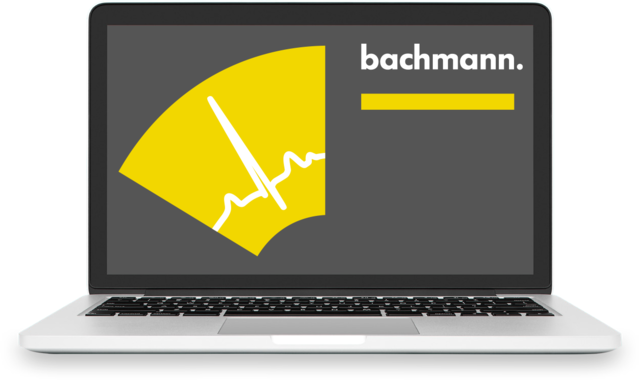WebLog API
Application Programming Interface
Condition monitoring products from Bachmann enable comprehensive condition monitoring of machines and plants based on the intelligent combination of data and information. The WebLog Server as the core component of Bachmann's WebLog Suite analysis platform bundles all this data from the condition monitoring systems (CMS), structural health monitoring systems (SHM) and the process or SCADA data from the operation of the plant. This information enables a holistic evaluation of the machine condition.
Condition Monitoring data can be visualized in many ways using the facilities within the WebLog Portal or WebLog Expert® software. However, customers may wish to interface directly to the data, information or knowledge held on a WebLog Server, in order to apply customized analyses.
For this an Application Programming Interface (API) has been created to allow customers to pull their own data from our server directly into their own applications.
There are four APIs:
Ticket API
To document analysis results, WebLog Expert® enables the creation of flexible reports (event reports, diagnostic reports, fleet reports) that are stored via the integrated ticket system. This enables complete traceability of analyses and communication with service and customers. In addition to access via WebLog Portal and WebLog Expert®, the Ticket API enables access to all ticket information. Customized dashboards can be generated via this API using tools such as Microsoft Power BI.
Health API
The WebLog Server calculates summary health indicators from the large number of characteristic values monitored on a turbine. Using the Health API, easy-to-use health information can be provided. By linking this health information of individual subcomponents of the mechanical drivetrain with the “reference designation system for power plants” RDS-PP - this solution allows high standardization. This can ease the collection of statistics through portability between wind turbine platforms.
Data API
For alternative analyses of raw data or integrating trends into customers’ own software or dashboards, the Data API is available for downloading raw data and trend data from the database. With this interface the metadata of available raw data sets and the raw data files can be retrieved. Customers can effectively compare available data with what has already been downloaded in order to avoid unnecessary downloads.
Moreover, it is possible to further process the raw data provided via Data API in combination with WebLog Interface on an external WebLog Server. In this way, data can be used for independent monitoring or in-depth expert analyses on a separate WebLog server. In addition to entire fleets, individual plants that require special observation in the event of critical anomalies can also be focused in this way
Trend Data API
In addition to raw data, WebLog stores long term trends of Characteristic Value (CV) derived from the raw data through specified settings in the system. Customers may wish to import these trends for comparison with other influences on the plant, either seen in SCADA data or recorded in working logs.
In this way, trends can effectively be compared with other available data sources, potentially using them as a feed for machine learning to assist with mitigation actions in future.
Limitations of API Usage
The APIs are designed for regularly downloading limited amounts of data and accesses to not overload the server infrastructure. For this reason, all the API downloads are subject to restrictions. Specific data packages can be negotiated.


